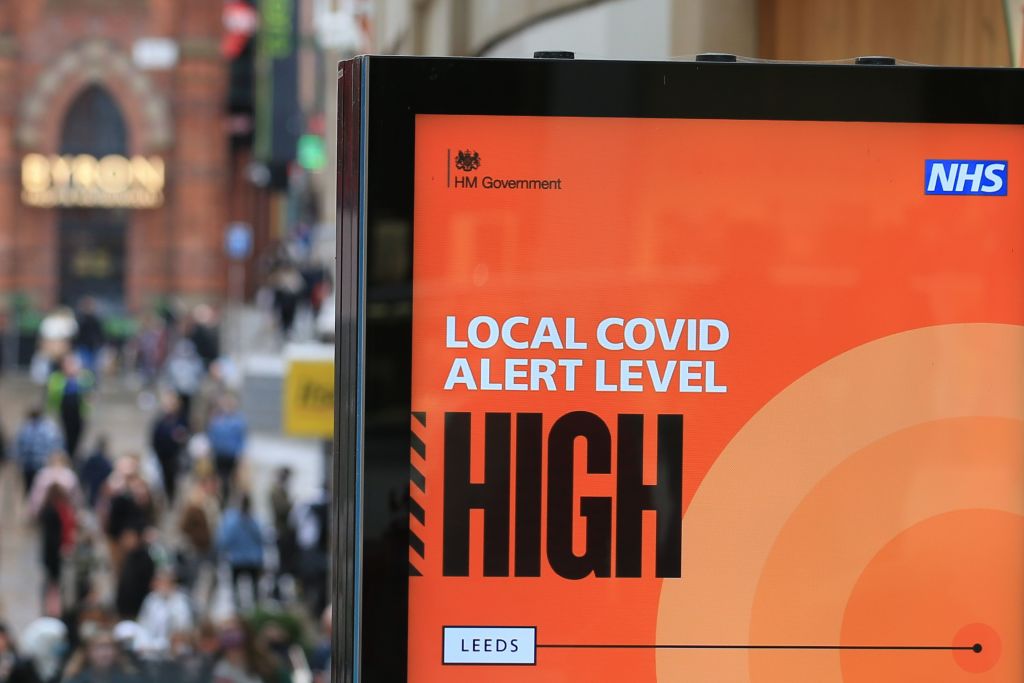Tomorrow will see the next flashpoint in the row between Conservative MPs and the government over the tiered system, with the publication of new allocations today, following a review of the restrictions. Backbenchers have been led to believe by ministers that there will be a more localised approach to the tiers, which is something they called for in the recent rebellion on the vote reintroducing the system.
In conversations with individual MPs, Health Secretary Matt Hancock has accepted that the decision this week to split parts of Essex and Hertfordshire in order to put the areas with high infection rates into Tier 3 set a precedent for the rest of the country. According to MPs who have spoken to him, Hancock’s demeanour has suggested that he is sympathetic to their calls for a more granular approach so that entire counties are not subject to restrictions on the basis of high infection rates in only a few areas.
The Health Secretary this week told MPs that he had decided to uncouple Leicester, Leicestershire and Rutland for the review, and colleagues in other parts of the country are hopeful that their areas will move down a tier after similar decisions are made to decouple them from nearby covid hotspots. After the rebellion – the largest of Johnson’s premiership since the general election – MPs made clear that they were sending a warning to the government that the system must be localised, or else ministers would have an even bigger problem on their hands.
But that doesn’t mean that Tory MPs are suddenly going to be happy with the government’s approach to the restrictions. One senior figure complains that the way the decisions are being taken will mean that businesses in areas moving down a tier will not be able to order fresh goods like food and drink in time for their sudden re-opening on Saturday. Others are anxious that the government may place all of England into tier 3 in the new year if infection rates do – as is widely expected – skyrocket, which would be much easier to do than announcing a full national lockdown. And MPs don’t have a chance to vote on the tiers again until the end of January, with the current system expiring on 3 February. By that point, pressure may have reached unsustainable levels once again in the party, even if the vaccine programme is progressing well.
 Isabel Hardman
Isabel Hardman
Will local tiers prevent another Tory rebellion?






Comments